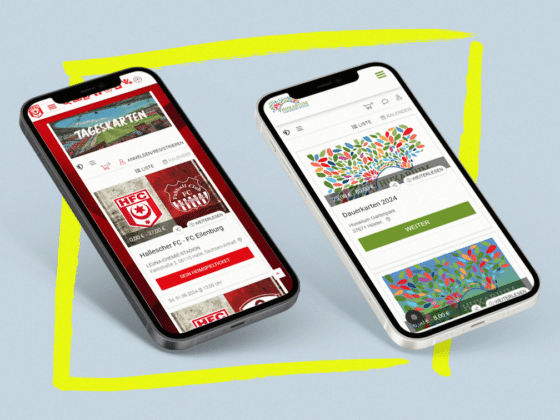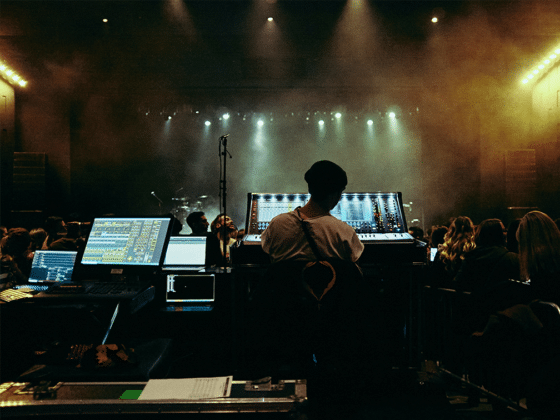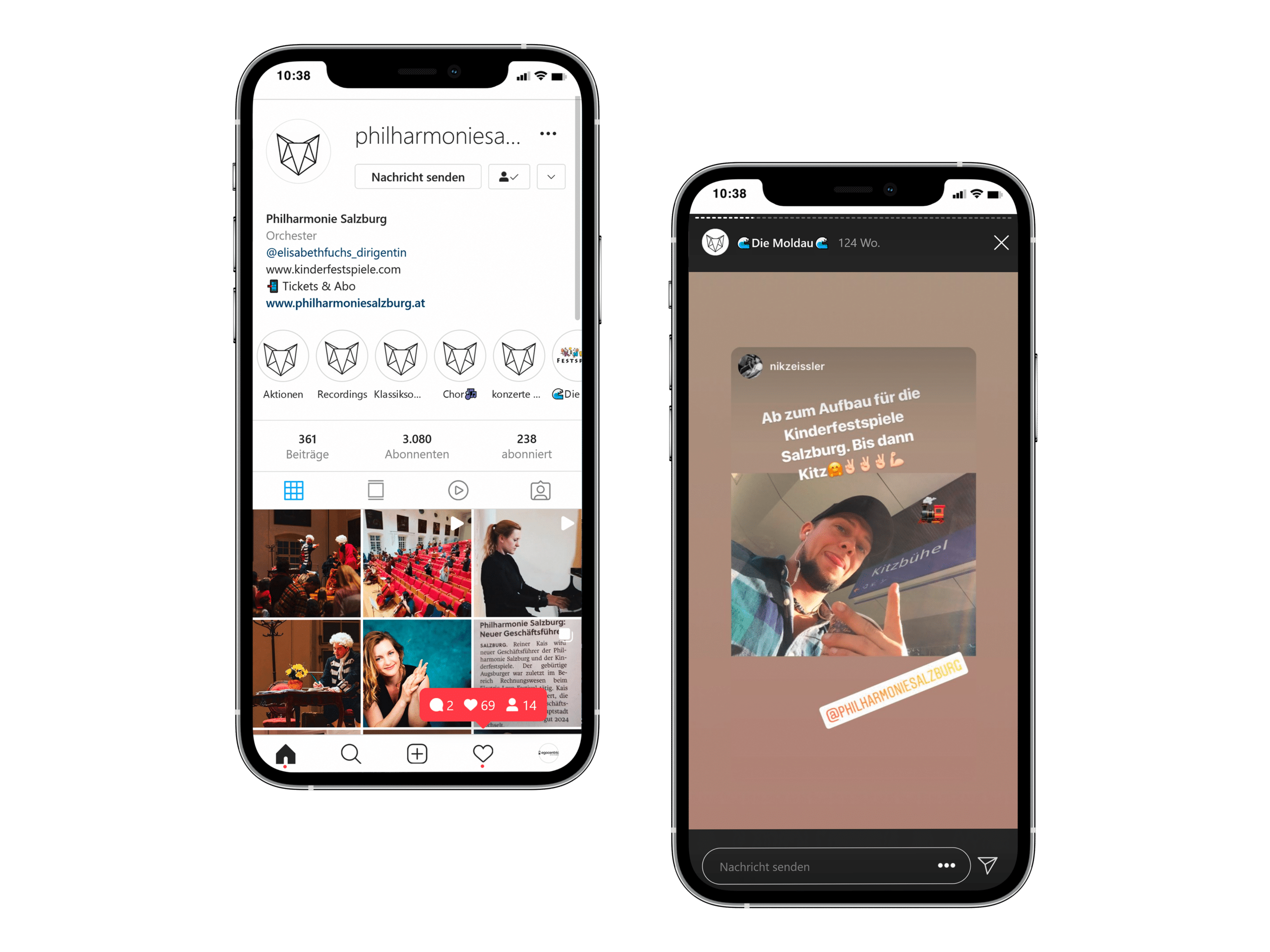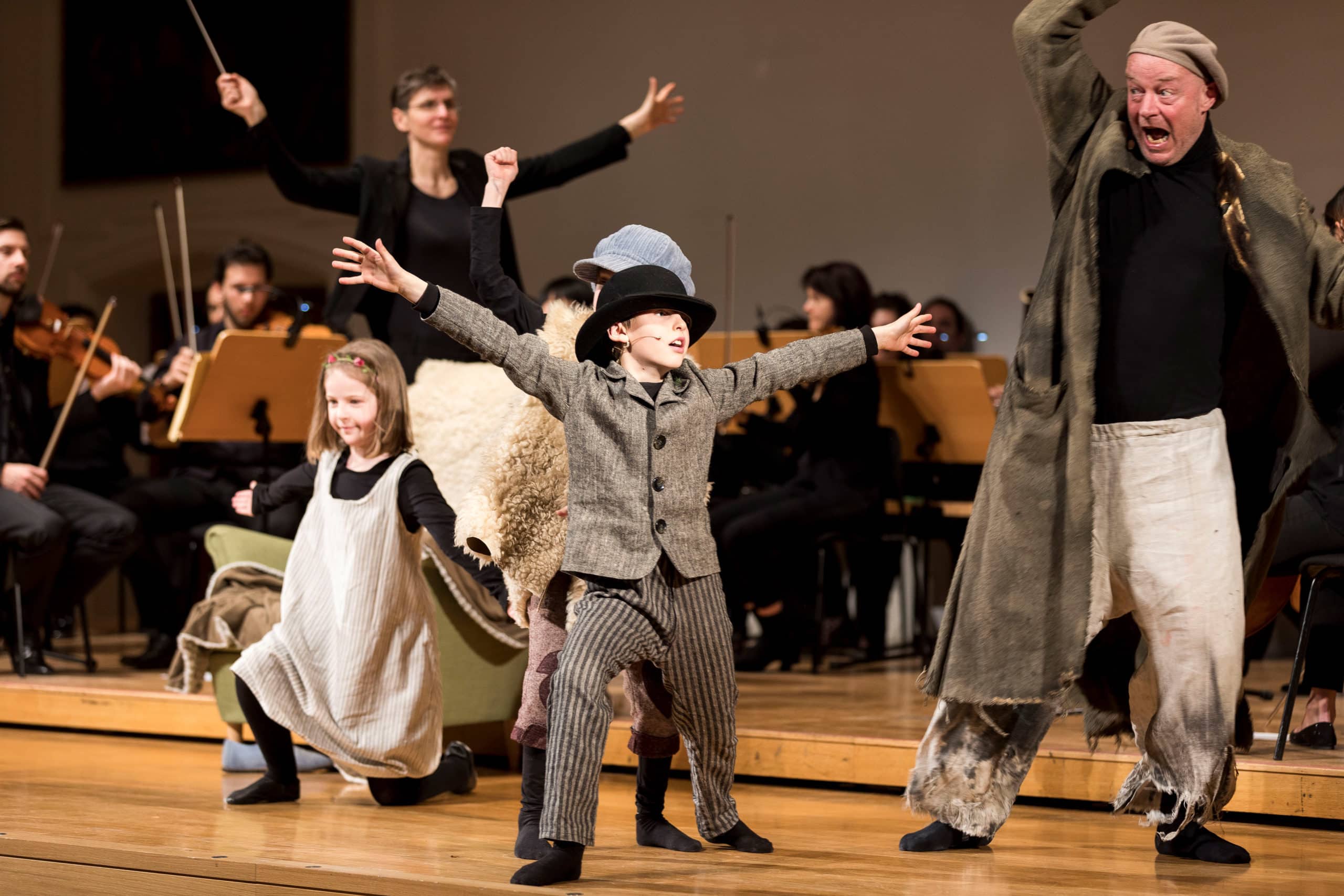The planning, organisation and implementation of an event often require months of preparation. At the end there is often the crucial question: Was the event successful? The key to answering this question lies in analysing certain data and metrics. This is the only way to ensure that your event was not only a success in your eyes, but also objectively. In this article, we show you the six most important metrics that you should definitely track in order to measure the success of your event and make future events even better.
You want maximum success?
Visit our website or contact us directly. Start improving your events based on data today!

Data, key figures, measurements
Many event organisers rely on their gut feeling to assess the success of their events. However, subjective assessments often lead to inaccurate results and leave important potential for improvement undiscovered. Without clear data and key figures, you don’t know exactly whether your event has had the desired impact.
Typical challenges
Lack of clarity about the success of an event: How many participants actually turned up? How good was the atmosphere during the event?
Lack of data for future decisions: Without metrics and clear KPIs, there is no basis for optimising future events.
ROI remains unclear: Many organisers do not know whether their investments have actually paid off.
Without the right data, it is difficult to understand whether your event has achieved its goals.
Solution
To overcome these challenges, you need to track specific metrics and KPIs that give you objective insights into the success of your events. Thanks to egocentric Systems’ technology, you can track and analyse all relevant data and metrics directly via the platform. This gives you the information you need in real time to assess how successful your event was and where improvements need to be made.
The six metrics you should definitely track
1. Number of participants: more than just counting heads
A classic, but essential. However, it is not only the number of registrations that is important, but also the actual attendance.
The number of participants is often seen as a fundamental indicator of the success of an event. However, it is important to look not only at the total number of participants, but also at the details.
Registrations vs. actual attendance: A large discrepancy between the number of registrations and actual attendees can give you valuable insights. Perhaps the communication about the event was not clear enough or there were logistical problems that made attendance difficult. By analysing this difference, you can take targeted measures to reduce the bounce rate.
Attendee demographics: It is also worth taking a closer look at the composition of the attendees. Are the attendees from your target group? The better the attendees match the event content, the more likely they are to make valuable contacts or benefit from your offers.
2. Engagement: Measure activity to increase the value of the event
Measure the activity of your attendees, whether through on-site interactions or on social media.
Engagement metrics show you how much participants are actually involved in your event. This is often an indicator of how well the content and event format are received.
Interaction during the event: If you are offering workshops or presentations, it is important to measure how many participants are actively taking part. Are questions being asked? Are the participants discussing with each other? The more interaction, the higher the level of satisfaction.
Gamification and apps: Some organisers use apps or gamification to increase engagement. For example, you could use an event app that sets tasks for participants or offers rewards for certain activities. By tracking these interactions, you can easily measure how involved participants feel in your event.
3. Satisfaction: Honest feedback directly from the source
Participant feedback via surveys directly after the event or a few days later gives you valuable feedback.
Satisfaction surveys are one of the simplest yet most valuable tools for gaining insights into how your event is perceived. They provide you with direct feedback and help you to identify strengths and weaknesses.
Timing of surveys: To get the best feedback, it is crucial to choose the right time for the survey. Immediately after the event, impressions are still fresh, but it can also be useful to send a second survey a few days later. This gives participants time to reflect on the event and provide more thoughtful responses.
Question formats: To get usable data, your survey should be clearly structured. Use a mixture of open questions (‘What did you like best?’) and closed questions (‘How would you rate the event overall on a scale of 1 to 10?’). This will give you both quantifiable data and qualitative feedback
4. ROI: weigh up the costs and benefits
Check whether your event was financially successful. What revenue was generated? How high were the costs?
Measuring ROI is one of the biggest challenges for many event organisers. This is because it’s not just about obvious income and expenditure, but also about factors that are difficult to quantify, such as brand perception or future business opportunities.
Direct revenue: Ticket sales, sponsorship contributions and merchandise are the most obvious sources of revenue that you should include in your calculations. Here it is important to track exactly which ticket categories have sold the best and which sponsorship deals have been the most lucrative.
Indirect benefit: Often the true value of an event lies in the long-term impact. You may have made new contacts that lead to business deals in the future. Improving your brand perception through a well-organised event also contributes to long-term success. Although these are difficult factors to measure, they should be included in the measurement of success.
5. Leads and networks: quality over quantity
How many new business contacts were you able to make? Quality counts more than quantity here.
Events are ideal opportunities to make new business contacts. But the mere number of business cards or e-mail addresses collected is not the only indicator of success. It is much more important to evaluate the quality of these contacts.
Lead tracking: You can use modern tools to track how many leads were generated at your event. However, it is even more important to track the further development of these leads. How many of these contacts have developed into actual business deals?
Networking events: At conferences or trade fairs, making new contacts is often the main objective. Here you can ensure that your participants get the maximum benefit from the event by organising special networking sessions or platforms that specifically support networking.
6. Social media reach: the digital business card of your event
Track the online response and see how far your event reaches on social networks.
Social media is one of the strongest indicators of the resonance of your event beyond the actual participants. It shows how many people outside the event have heard about your event and how much attention it is generating in the digital world.
Hashtag usage: Analysing hashtag usage on Twitter, Instagram and the like gives you an insight into the reach of your event. The more frequently and by the more influential people your hashtag is used, the greater the digital visibility.
Influencer marketing: In many industries, it makes sense to invite influencers or industry experts to events in order to utilise their reach. They can share the event live and make their own followers aware of your event.
Benefits
Why are metrics so crucial for the success of events? Metrics help you to translate the complexity of an event into concrete, tangible figures. They provide you with an objective basis for recognising what works well and where there is room for improvement.
Tracking these metrics brings you numerous benefits that you can incorporate directly into your event strategy.
Attendee numbers and engagement:
If you know how many attendees actually turned up and how they behaved during the event, you can better adjust your future planning. Example: If you notice that attendee numbers are dropping, a better promotional strategy might be necessary.
Satisfaction:
Through direct participant surveys, you can find out important details about how the event went and which aspects need to be optimised. A satisfied participant will not only come back, but will also tell others about your event.
ROI:
With a precise calculation of the return on investment, you know exactly whether your event was profitable. This way you can ensure that your investment is worthwhile.
Leads and networks:
Measuring how many valuable business leads were made during an event gives you an important indicator of success, especially for networking events.
Social media reach:
Online reach shows how well your event is received digitally. A high reach means that your event is being discussed and recognised beyond the participants.
By using the software from egocentric Systems, you can record and analyse this data directly and with little effort. This makes it easier for you to make data-based decisions and continuously improve your events.
Conclusion
Success is measurable – this also applies to events. By consistently tracking the right metrics, such as number of participants, engagement, satisfaction, ROI, leads and social media reach, you can ensure that your events are not only successful in the short term, but also in the long term.
With the egocentric Systems platform, you have the right tools to efficiently collect and analyse all this data.
Whether you are an event manager or regularly organise events, knowing and using the right metrics is key to your success. Use these metrics strategically to get the most out of your events.
More Mow than Wow?
Our event experts have the right digital, sustainable solution at the ready, whether ticketing, catering, access or everything in combination. Get to know us and let us show you our solutions without obligation.

Sustainable Event Ticketing: How Eco-Friendly Solutions Are Changing the Industry
READ NOW
White Label Ticketing: The Solution for Personalized Ticketing Systems
READ NOW
Ticket price increases and concert cancellations: current challenges and possible solutions
READ NOW




